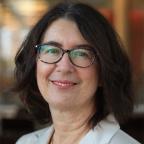
Featured Navigation Links
DEGREE REQUIREMENTS
PRACTICUM & INTERNSHIP
STUDENT RESOURCES
FACULTY & STAFF
CACREP ACCREDITATION
ADMISSIONS
We are no longer accepting applications for Fall 2024. Applications for Fall 2025 will open in the fall.
Preparing National Leaders and Advocates in Counseling
The Clinical Mental Health Counseling program at Seattle University prepares mental health counselors to be ethical, reflective, and multiculturally competent leaders and change agents to work in clinical mental health, hospital, agencies, and college settings.
Seattle University’s Clinical Mental Health Counseling program is a national leader in preparing mental health counselors. The program holds the distinction of being the first counseling program in Seattle to be accredited by the Council for Accreditation of Counseling and Related Educational Programs (CACREP). CACREP is the leading accrediting body for master’s level counseling programs in the country. The Clinical Mental Health Counseling program is also ranked as the top graduate counseling program in Seattle, based on program completion rate, job placement rate, licensing exam pass rates, accreditation length, research productivity of faculty, and cost of tuition and fees by Top Counseling Schools, a website for counseling students and professionals.
The counseling faculty are national leaders in their respective areas of research. Counseling faculty are also involved at the state and national levels regarding clinical mental health counseling issues. The Clinical Mental Health Counseling program is the only program in the nation where graduates are eligible to pursue Washington State substance use disorder certification upon graduation. This distinction positions our clinical mental health counseling graduates to provide integrated care. Graduates of the program are able to provide both substance abuse and mental health counseling. Graduates of the program leave with a deep understanding of mental health and substance abuse issues, strong clinical skills, and possess a commitment to social justice.
Program Features
- Accessible faculty
- Courses that begin at 4pm and later, Monday through Thursday evenings.
- Faculty who are leaders in the field and nationally recognized for their research
- Our field placement courses have small class sizes of no more than 12 students
- Accredited by the Council for Accreditation of Counseling and Related Educational Programs (CACREP)
*underestimate because not all graduates could be reached
Contact Us

Counseling Graduates
The Clinical Mental Health Counseling Program prepares students for work in various community settings, such as youth service agencies, mental health centers, psychiatric hospitals and correctional facilities.
We believe that effective counselors have:
- a sense of personal identity and an understanding of the process of identity formation that guides their work and governs their professional ethics
- a commitment to social justice and working with diverse populations
- a thorough grounding in basic counseling skills compatible with any theoretical orientation
- knowledge of a variety of classical and contemporary counseling theories and ability to integrate these into their own evolving theoretical foundation
- managed the stresses of a demanding profession by developing effective coping skills
- developed a professional and personal support system to nourish and sustain them
Program of Study
-
Year 1
-
Fall Theories of Counseling and Psychotherapy 3 Credits Counseling for Social Justice 3 Credits Intro to Clinical Mental Health Counseling 3 Credits Winter Multicultural and Social Justice Counseling 4 Credits Counseling Across the Life Span 4 Credits Addictions Counseling 4 Credits Spring Research for the Counseling Program 3 Credits Career Counseling 3 Credits Diagnosis and Assessment 4 Credits Summer Professional & Ethical Issues in Counseling 4 Credits Consultation and Supervision 3 Credits -
Year 2
-
Fall Family Systems 4 Credits Human Sexuality 3 Credits Fundamental Counseling Skills 4 Credits Winter Psychopharmacology 3 Credits Counseling Lab 4 Credits Crisis Counseling 3 Credits Spring Counseling with Children & Adolescents 4 Credits Test and Measurement 3 Credits Group Counseling 4 Credits Summer Case Management 4 Credits -
Year 3
-
Fall Practicum 4 Credits Winter Internship I 4 Credits Spring Internship II 4 Credits Summer Internship III 4 Credits
Mission-Driven Excellence
The Seattle University Counseling Department is committed to preparing ethical, self-aware counselors devoted to social justice, equity, and anti-racism. We develop students’ multicultural and social justice competence to ensure an understanding of systemic oppression that will help them advocate with and for marginalized communities. Our graduates are change agents who promote justice and foster individual and collective well-being through their integrity, reflective practice, and sustained efforts addressing inequities in their counseling. Learn more about the Counseling Programs Mission Statement and program objectives, accreditation, student organizations and community connections by exploring the links below.
Join us for an information session:
“SU’s Clinical Mental Health Counseling program has provided me with a dynamic educational experience. I am grateful for the engaged and caring faculty that have prepared me to help people live healthier and happier.”
Riley Cornett Clinical Mental Health Counseling alumnusOver 80 years, our College of Education has graduated more than 11,000 students. With our alumni becoming notable leaders who spearhead systemic change and inspire future generations as administrators, teachers, counselors, school psychologists, principals, superintendents, deans, community college faculty as well as college and university presidents.